Who are we?
The UPC's business chairs are a means of establishing a strategic, transversal, durable and broad-spectrum collaboration between the UPC and one or more companies, with the aim of developing teaching, research, dissemination, valorization and knowledge transfer objectives in one or more of the UPC's own areas of knowledge. In our case, the driving company, TAIGUA, is a benchmark in the public management of urban water. Its collaboration with the UPC and the numerous research groups in the field of urban hydraulics and infrastructure management will result in the training of professionals and the development of useful solutions for the company itself but also for the sector in general.
THE COMPANY
|
|
|
|
An EPEL, Local Public Business Entity, is a public law entity with its own legal personality, full legal capacity, its own assets, and autonomy in management to fulfill its purpose and objectives. Therefore, it can carry out all kinds of administrative and disposal acts. It is governed by private law, except in the formation of the will of its bodies, in the execution of administrative powers assigned to it, and in aspects specifically regulated in administrative law rules for such entities. TAIGUA is dependent on the City Council of Terrassa and is assigned to the department of the City Council of Terrassa that is responsible for the management of the public potable water supply service, which oversees strategic direction, evaluation of activity results, and efficiency control of the entity. |
|
THE UNIVERSITY
|
The university is the academic core of our chair, contributing knowledge, research, and a dynamic educational community. The Polytechnic University of Catalonia - BarcelonaTech (UPC) is a public institution for research and higher education in engineering, architecture, science, and technology. It awards nearly 6,000 bachelor's and master's degrees annually and more than 300 doctoral degrees. The Chair is located at the Higher School of Industrial, Aerospace, and Audiovisual Engineering in Terrassa (ESEIAAT). In this school, with more than 120 years of experience, over 4,000 students study across 10 bachelor's and 10 master's programs. The UPC campus in Terrassa has more than 300 researchers distributed across 28 research groups. The Research Centre in Supervision, Security, and Automatic Control (cs2ac) has extensive experience in urban hydraulics and has collaborated with many companies in the sector as well as research centers and universities worldwide. Specifically, it has had research contracts with TAIGUA, directed an industrial thesis in this company, and participated in competitive projects with it. |
|
OBJECTIVES
Digital Technologies
Apply innovations like AI and big data to improve water management.
Applied Research
Promote scientific and technological studies for intelligent urban water management.
Professional Training
Offer programs to train professionals in operational hydraulics, hydroeconomics, and water governance.
Hydroeconomics
Provide training in engineering and economics to students and professionals who depend on or will depend on urban hydraulic infrastructures.
Sustainability
Align with SDG 6 to help ensure the availability and sustainable management of water and sanitation for all people.
Governance
Ensure the effectiveness and efficiency of water policy implementation while maintaining trust and commitments that guarantee clear and democratic resource management.
Citizen Awareness
Promote social awareness and understanding of water cycle management and policy actions.
Innovation
Support technological and business innovation in water treatment, consumption, and reuse.
OUR TEAM
The UPC-TAIGUA Chair includes faculty researchers from UPC and professionals from the company to define and create training, technology transfer, and outreach projects. We offer research initiation grants to address the challenges we set for ourselves. In addition, we regularly invite national and international experts for specific tasks.
Learn more about our experts.
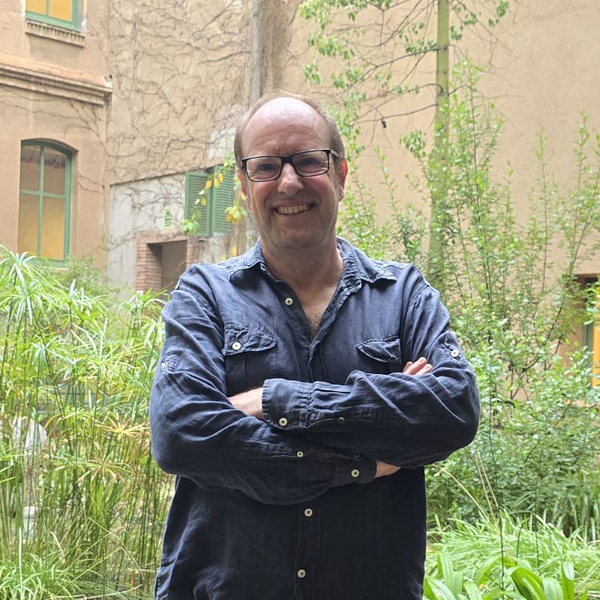 |
Director: Dr. Ramon Pérez Magrané, associate professor in the Department of Systems Engineering, Automation, and Industrial Informatics since 1996. He holds a degree in Physics from UB (1993) and a PhD from UPC (2003). His research and teaching focus on modeling, control, and supervision of systems. Specifically, he has participated in numerous national and international research and development projects over the past two decades focused on water networks (calibration, optimal control, leak detection and localization, chlorine and disinfection by-product modeling). He has collaborated with the sustainability unit of EURECAT since 2004. Currently, he leads the Intelligent Control Systems Research Group (2021 SGR 00395). |
 |
Co-director: Mr. Ramon Vázquez García, Civil Engineer with business training at Insead, has devoted an extensive career to engineering and infrastructure development in various technical and managerial roles. He has worked in both public and private sectors. He has held several positions in the Barcelona Metropolitan Area, especially in the city of Barcelona as the designer of the new sewerage system, the foundation of the current system operated by Bcasa, and at the Barcelona Metropolitan Corporation as Director of Water Cycle Services, where he structured a team for the improvement of planning and regulation of metropolitan water services. He held a similar role at Aguas Argentinas as Director of Planning and Contractual Regulation. He has been an executive at major consulting firms such as Europroject Tecnologias, Auding Intraesa, Covitrecma, Interact, and Egis Eau. He is currently Manager at the public operator Terrassa Cicle de l'Aigua. |
 |
Collaborator: Mr. Albert Manero Camps, holds a degree in Biology and a PhD in Microbiology from the University of Barcelona (2003). He spent 6 years in research and later led the Microbiology section of Mina Pública d’Aigües de Terrassa for over 21 years. He has experience in implementing and maintaining risk management systems, leading food safety management and food defense plans, as well as laboratory quality systems. He is currently part of the Studies and Projects Service in the Planning and Technology area of the public operator Terrassa Cicle de l’Aigua. |
 |
Collaborator: Martí Rosas Casals, is a tenured university professor in the Department of Thermal Machines and Motors at UPC. From 2014 to 2019, he was deputy director of the University Research Institute for Sustainability Science and Technologies and director of the official master's program in Sustainability Science and Technology. Since 2023, he coordinates the PhD program in Sustainability at UPC. His teaching and research focus on applying modeling methodologies to complex systems, with research results covering various sustainability areas, such as the evolution, structure, and dynamics of energy infrastructures, technological innovation, socio-environmental interactions, climate change impacts, and energy security. |
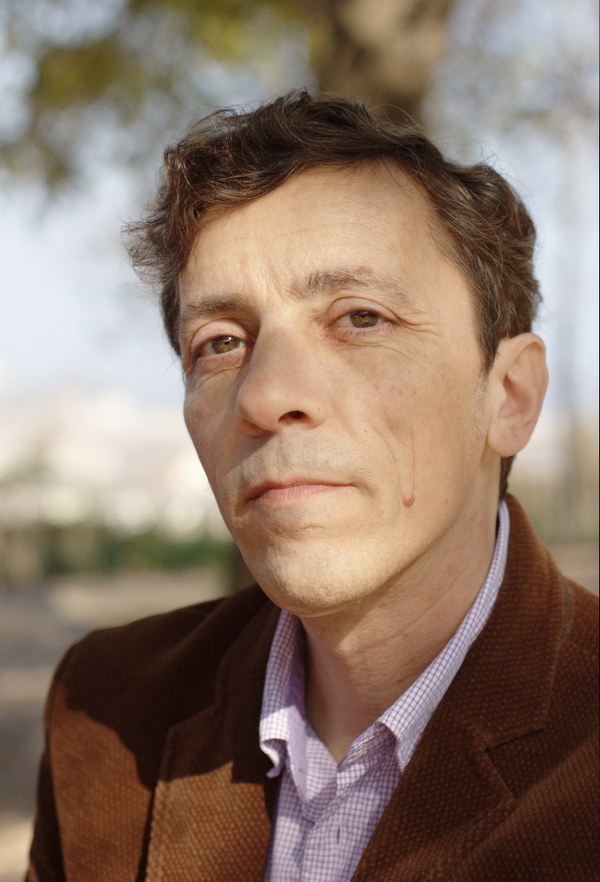 |
Collaborator: Bernardo Morcego, is an Associate Professor at the Universitat Politècnica de Catalunya, teaching at the ESEIAAT School of Engineering. He earned his PhD in Computer Science in 2000. His research interests focus on controlling complex systems, such as water distribution networks. He also works on applying artificial intelligence techniques to control and prediction problems. He has participated in various water cycle projects, the latest aiming to optimize predictive maintenance of distribution networks in Catalonia. |
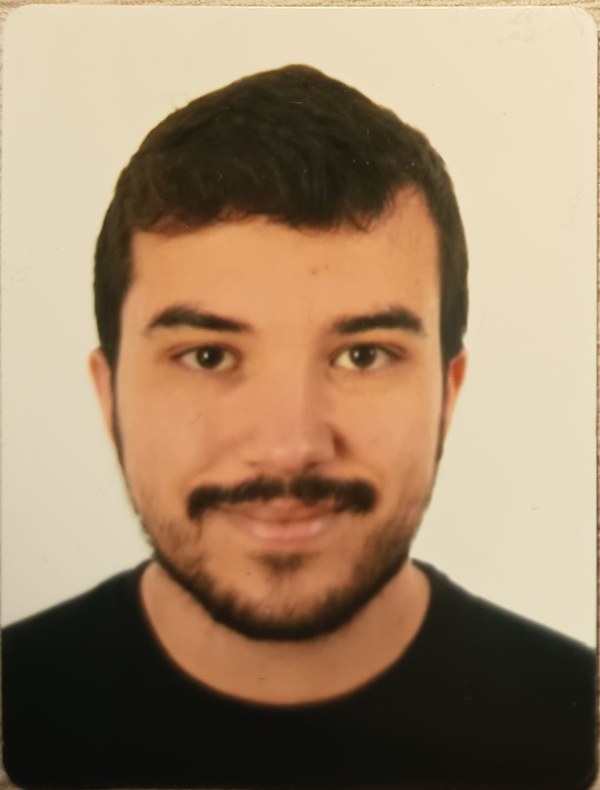 |
Intern: David Alcaraz Carrasco, a dual degree student in mechanical and electronic engineering. He has participated in several research initiation grants, contributing to arc discharge testing, developing master’s course materials on Industry 4.0, cyber-physical systems, and cloud computing, and creating predictive models for failure prediction in water distribution networks in Catalonia to support medium-term renewal planning. He is also part of the Space Program Association, designing a large competition drone and developing AI algorithms for autonomous flight. He is primarily responsible for structural simulation and coordinates quality management across project documents. |
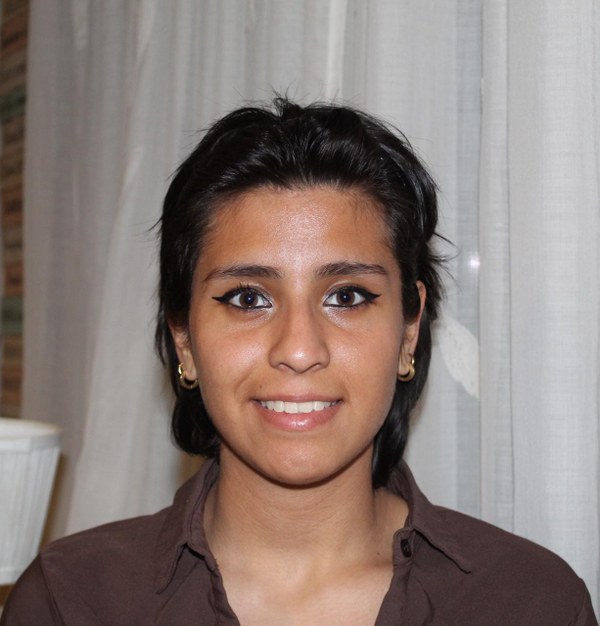 |
Intern: Kiara Kristin Rodriguez Uribe, a third-year Computer Engineering student at the Barcelona School of Informatics (UPC), specializing in Information Systems. Within the chair, she focuses on web development and design, as well as creating serious games to offer interactive activities. She has acquired self-taught development skills and collaborated on projects like creating the website for the CS2AC research center (UPC). With this experience, she aims to broaden her skills to become a versatile and innovative professional. |
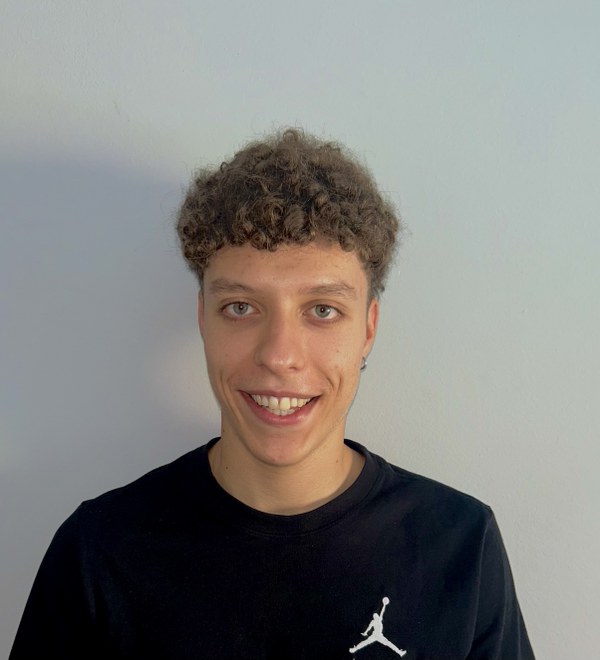 |
Intern: Sergio Cañete Tudela, third-year student of Industrial Electronics and Automation Engineering at the Universitat Politècnica de Catalunya (UPC). Within the chair, he focuses on researching and analyzing water consumption, aiming to estimate average consumption through efficient use of smart metering, enabling continuous monitoring. He contributes to developing real-data-based solutions to improve water resource management. This experience allows him to deepen his knowledge in smart metering and move toward a career focused on innovation and energy efficiency. |
 |
Student: Jamal Ikiss Faiz, is a second-year student of the Master's Degree in Automatic Systems and Industrial Electronics at ISEIAAT (UPC). Previously, he studied the Degree in Engineering at the Barcelona Est School of Engineering (EEBE - UPC). He currently collaborates with the chair in the development of algorithms for the research and control of water quality in the Terrassa supply network together with TAIGUA. |
 |
Student: Scott Martinez Vila, mechanical and chemical engineer, master's student in automatic systems engineering and industrial electronics. He has participated in an early research grant where he conducted a study and modeling of textile waste recycling processes, publishing in a Q1 journal as lead author. He is currently working on his master's thesis with the chair, studying the operation of water quality simulators, both mathematical models and algorithms, with the aim of validating their use in complex networks. |
 |
Student: Berta Rodó, |
 |
Guest Speaker: Leonard Carcolé, Civil Engineer. Master Level 7 of the European Qualifications Framework (EQF), PADI from IE Business School, with complementary training in finance. Held positions: General Director of the Societat General d’Aigües de Barcelona and Sole Administrator of Sorea. General Director of the Catalan Water Agency (2011–2013). President of the public company Aigües Ter Llobregat (2011–2013). Vice President of Clavegueram de Barcelona (CLABSA). CEO of: Empresa Municipal Mixta d’Aigües de Tarragona (EMATSA), Serveis Integrals de Manteniment del Maresme (SIMMAR), and Drenatges Urbans del Besós. Board Member of: Aguas Municipales de Alicante Empresa Mixta (AMAEM), Aigües de la Costa Brava. Founding partner of Capiol, engaged in service management consulting, especially related to the integrated water cycle. Participated in committees, boards, and associations: President of the Catalonia Water Services Association (ASAC), member of the Council for Sustainable Water Use (CUSA) of the Catalan Water Agency, and member of the Emergency Drought Committee 2007–2008 of the same agency. |
 |
Guest Speaker: Edurne Bagué, is a doctor in Social Anthropology, specializing in water, society and culture from the Center for Research and Studies in Social Anthropology (CIESAS) in Mexico where she studied as a CONACYT fellow. She is a member of the UNESCO Chair in Sustainable Human Development at the UdG and has promoted and been Coordinator of the Güell Community in Girona. Her work focuses on the study and anthropological analysis of the existing relationships between sociocultural models and water governance models, processes of communalization of public services and how to promote socioecological transition processes, mainly of water. In the technical field she designs, accompanies and advises on the promotion of sociocultural and integral water management and governance. She works and explores Relational Systemic Governance. |
 |
Guest Speaker: Mr. Pere Mora Segués, Industrial Organization Engineer for ESEIAAT, has more than 30 years of experience in the water supply sector, both in the private and public sectors. He began his professional career at Mina Pública d'Aigües de Terrassa. There he led the implementation and development of the geographic information system (GIS) and the modeling of hydraulic networks. These projects have contributed to improving the operational efficiency and recognition of the company within the sector. During this stage he combined technical responsibilities with management tasks. Leading the implementation of quality, environmental and safety systems, achieving the EFQM seal of business excellence. He currently serves as Head of the Infrastructure and Operation Area of TAIGUA. He is an active member of the company's executive committee, where he contributes to the strategic and operational definition of the organization, consolidating his leadership and experience within the water sector. |
 |
Guest Speaker: Annelies Broekman, since 2013 she has been a member of the CREAF research on water and global change and develops different projects focused on improving governance strategies for adaptation in the Mediterranean region. Member of the Foundation for a New Water Culture, she has extensive experience in promoting participatory processes and creating deliberative spaces. |
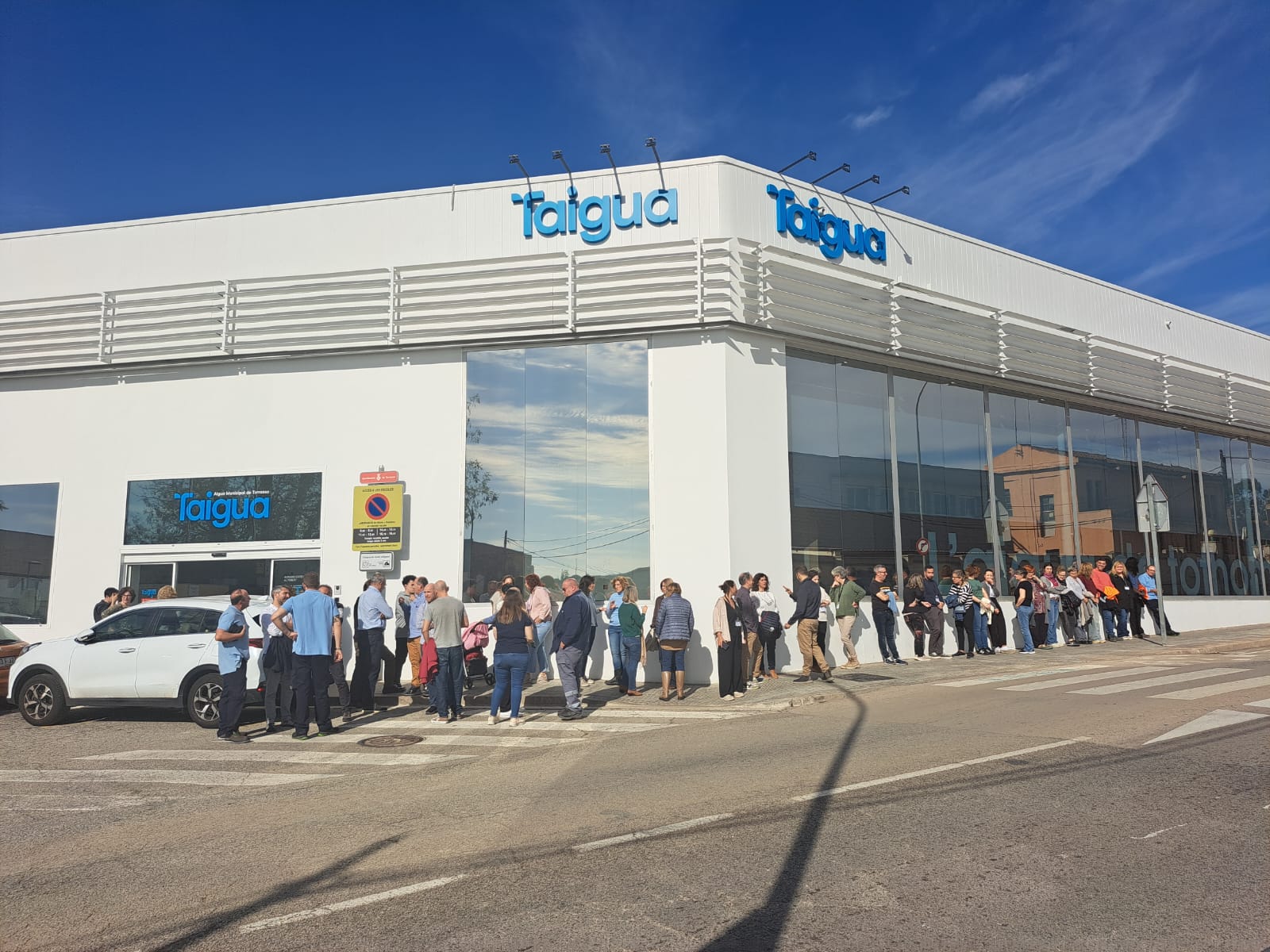

Share: